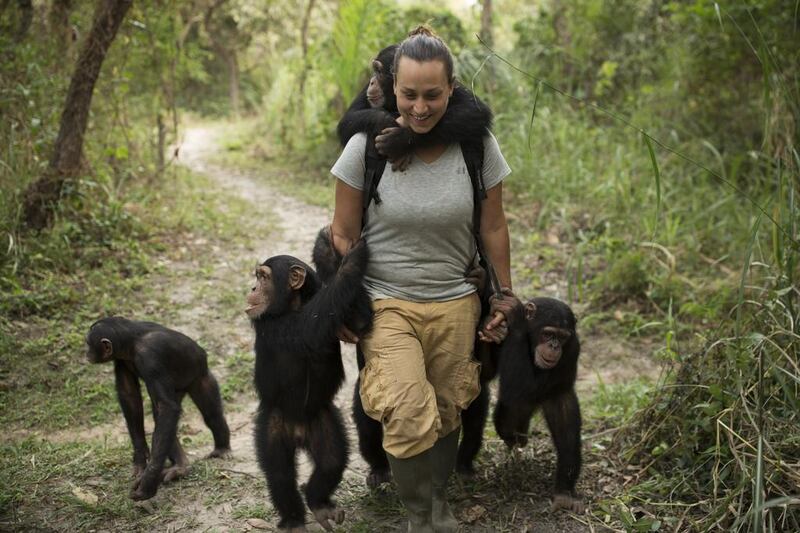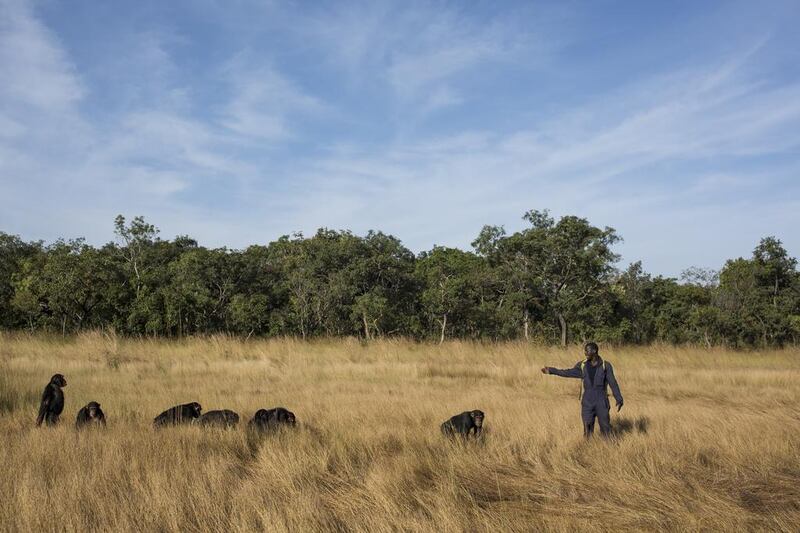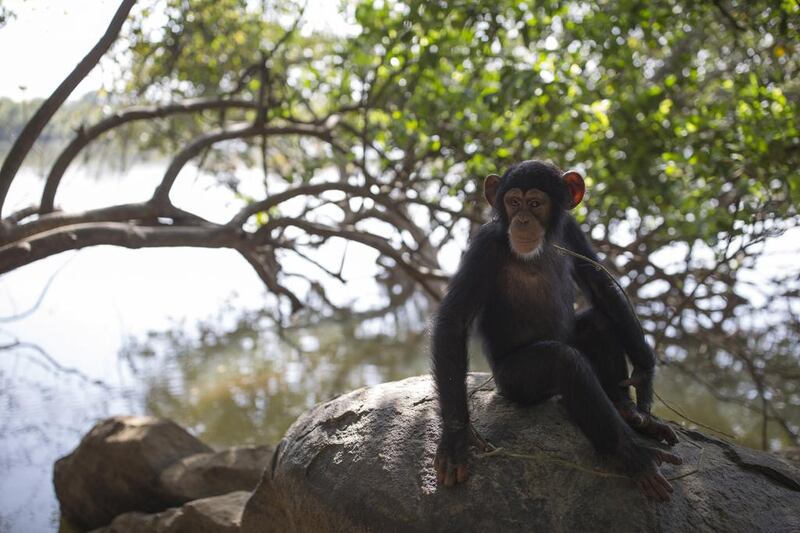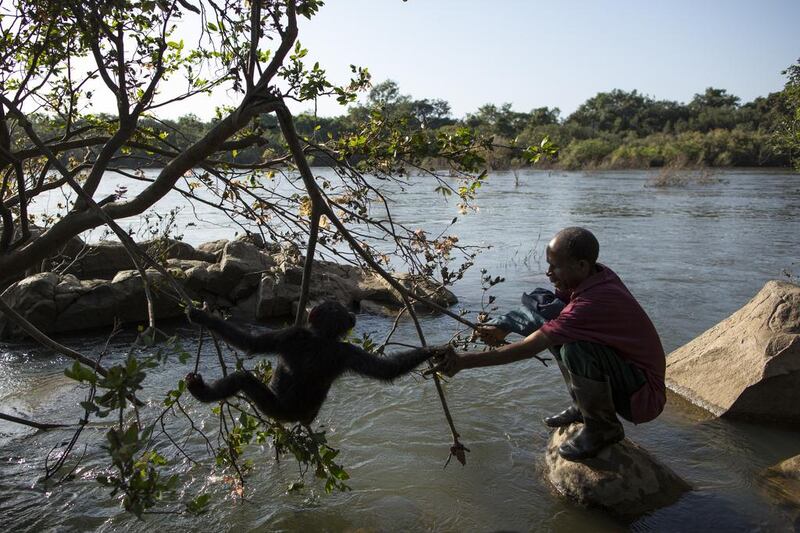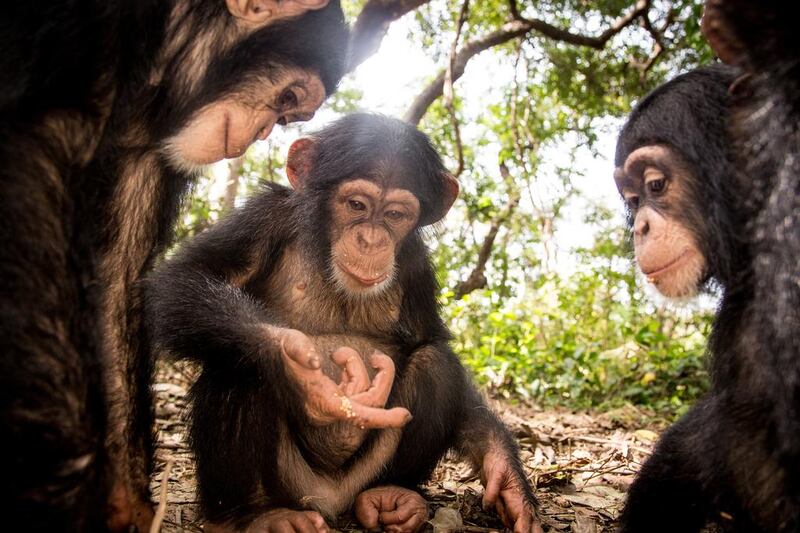Staring hard into an old, weather-tattered plastic drink bottle, I can make out a mass of entwined leaves, roots and assorted items of undeterminable origin. I raise my eyebrows. “And this is it?,” I ask in what must sound like a sceptical tone. The old man, with glitter silver hair, defensively nods. “This is it. This can cure almost anything. Just make a soup from it and drink.”
I must have eaten something bad the night before, because I have spent much of the morning doubled up with stomach cramps. When I tell my driver about this and suggest stopping at a pharmacy to get some medication, he scoffs at the idea. “Pff. They’ll just fill you with chemicals and then charge you a lot of money.” He’s probably right. “Let’s go and see a guérisseur instead and get something natural. I know a good one with strong powers. It will be interesting for you as well.”
With my stomach feeling like it’s doing cart-wheels on a trampoline, I’m not entirely sure that “interesting” or “natural” is what I want right now, but on the other hand, there’s something undeniably intriguing about seeking treatment from a guérisseur.
I’m in Conakry, the swirling, buzzing capital of Guinea, a small country of forests and mud, cool highland plateaus and mangrove swamp coasts, on the western bulge of Africa. A former French colony, today, it’s one of the world’s least-known and least-developed countries.
Guinea rarely makes international news. In 2014, though, Guinea filled the airtime of international news organisations for weeks on end thanks to an outbreak of Ebola. By the end of that year, the virus had claimed several thousand lives across Guinea, as well as neighbouring Liberia and Sierra Leone, and had led to much of the region being shut off from the rest of the world.
Surrounding countries slammed their borders shut in fear that the virus might spread. Airlines stopped flying to affected countries and Guinea’s already sluggish economy ground to a total standstill. But eventually local authorities and international medical NGOs got a grip on the outbreak, and in June last year, the World Health Organization declared Guinea Ebola-free. Projects that had been on hold for a couple of years sprang back to life, borders re-opened and airlines returned, including Emirates, which in November relaunched direct flights between Dubai and Conakry.
The exact translation of the French word guérisseur is a little hard to pin down and rather depends on the translator. “Faith healer”, “witch doctor”, even “sorcerer” are all possible options, but I prefer to use “traditional healer”.
I ask the guérisseur how he came up with his heal-all recipe. “I watched the chimpanzees in the forest and copied what they did.” Perhaps sensing my increasing alarm at consuming a chimp-conjured medication, the guérisseur adds more detail. “For 25 years, I worked as a field biologist and university lecturer. I was studying the chimpanzees that live in the forests in the south of Guinea, and over time I noticed that when a chimp was sick it would often go off on its own and find certain plants in the forest to eat. I realised that they had some basic understanding that certain plants could cure them of certain sicknesses, so I started gathering the same plants and came up with this medication. It really does work for various stomach bugs and other minor illnesses.”
Somewhat more reassured, I pay up and make my way back outside into the bright light and deafening racket of a rush-hour morning in Conakry. While I wait for my medication to take effect, I need somewhere quiet to recover. My driver has the answer: “Îles de Los.” Ignoring my protestations about preferring to lie in my hotel bed, he takes me to Conakry’s filthy port, where we jump into a small boat and bob away from the noise, congestion and chaos of the city to a peaceful island world of gold-tinged sand beaches, bird- and butterfly-filled forests and little thatch villages linked by lipstick-red bumpy mud tracks.
The name Îles de Los derives from Ilhas dos Ídolos, Portuguese for “Islands of the Idols”. It’s certainly appropriate, because with frequent little ferry boats making the hour-long crossing from Conakry, this is the weekend getaway destination of choice for stressed city folk. As laid-back as the islands are, though, I can’t get my mind to relax. All that chatter about medically aware chimpanzees has piqued my interest. And after a day or two of lazing in the shade of palm trees and dipping in and out of the water, my stomach has stopped spinning enough to return to the mainland and go looking for chimpanzees.
Asking around, I quickly discover that Guinea has the largest chimp population in West Africa, but because of widespread and severe deforestation, as well as an almost total lack of environmental law enforcement, Guinea’s chimps are increasingly left with no choice but to live side by side with their human neighbours. And as I discover a few days later in the Parc National du Haut Niger, some chimpanzees end up living much too close to their human cousins.
Deep in the heart of the park, the Chimpanzee Conservation Center was set up to try to rehabilitate chimpanzees rescued from the exotic pet trade (many were set to be illegally exported to Gulf states and China) back in the wild. It was a slow and difficult process. Some of the chimps had been taught to smoke cigarettes or wear clothes, and almost all were highly traumatised by their experiences. Not that I would have known this. On my first morning at the centre, I sit quietly among leaf litter of the forest floor while a handful of baby chimps rumble and tumble around me, race up trees and even appear to have toddler tantrums when they don’t get their way. One of the babies is a little quieter than the others, though, and doesn’t seem interested in the rollicking games taking place around it.
“This one’s feeling a little unwell I think,” the head of the project, Christine, says. “In the wild, chimpanzees sometimes know what sort of plants can cure them, but these ones have never learnt that skill, so we have to treat them with medication if they get too sick. She’ll be OK, though.”
I think about the old plastic drink bottle half-full of entwined leaves and roots, hidden somewhere in the depths of my bag. “Oh, I know all about chimpanzee medicine and how good that can be,” I reply, with a smile.
Stuart Butler is one of the authors of the Lonely Planet guide to West Africa.
travel@thenational.ae
